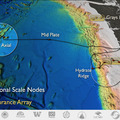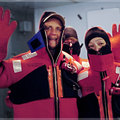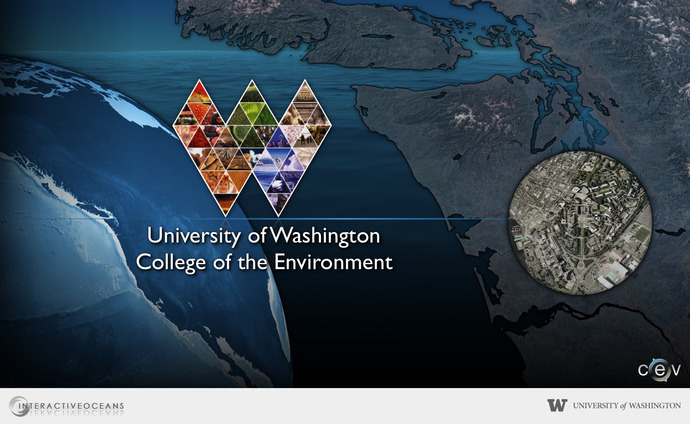Discovery is one of the guiding principles of the newly established College of the Environment at the University of Washington.
The University of Washington's College of the Environment was created in 2009 in recognition that the welfare of the Earth and its inhabitants are defining themes of the 21st century. Higher education has a powerful role to play in understanding and addressing environmental challenges. The University of Washington has over 400 faculty involved in environment-related research and education with over 50 independent environmental program. The UW is responsible for over $140 million annually in environmentally related research.
Discovery is one of the guiding principles of this new College. The UW leadership of the Regional Scale Nodes component of the NSF Ocean Observatories Initiative places the University of Washington at the center of a transformation in the sciences that is opening a new era of discovery on our planet. Remote, in situ detection and responses to critical changes taking place in natural environments are at the leading edge of an environmental renaissance.
The concept of a regional cabled ocean observatory was nurtured and developed at the UW, a vision built on decades of experience in at-sea fieldwork and research in the Northeast Pacific Ocean. The UW possesses exceptional resources and strengths in marine research and education across many disciplines: research and education within the School of Oceanography, which will join the College of the Environment; the 274-foot Global Class Research Vessel Thomas G. Thompson; the expert ocean engineers of the Applied Physics Laboratory; the College of Engineering; the College of Education; and centers in cutting-edge research ranging from nanotechnology to high-frequency ultrasound, from genome science to robotics.
The UW also possesses exceptional telecommunications networking assets that include a 25-year track record of advanced computing and communications that support nearly all forms of data, voice, video, and broadcast networks on campus, and at metropolitan, regional, national, and international scales.





